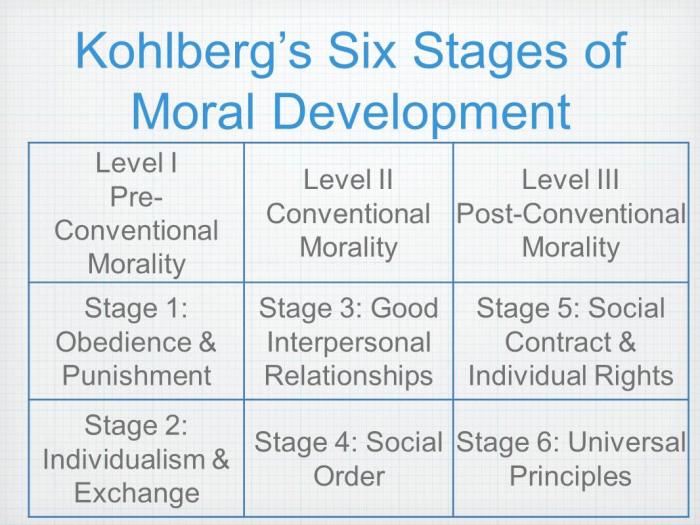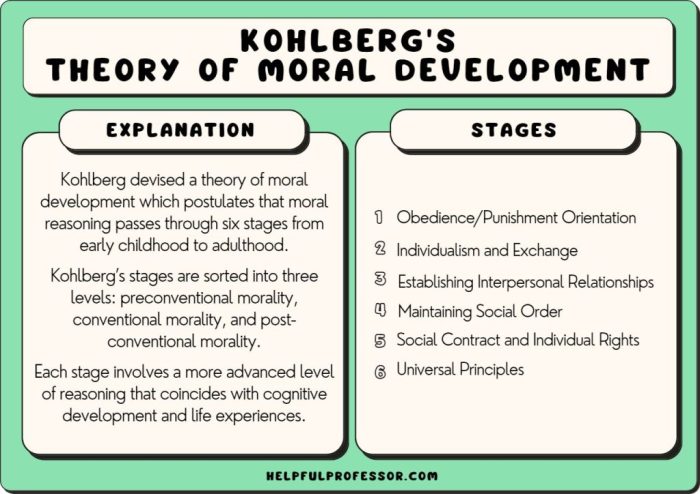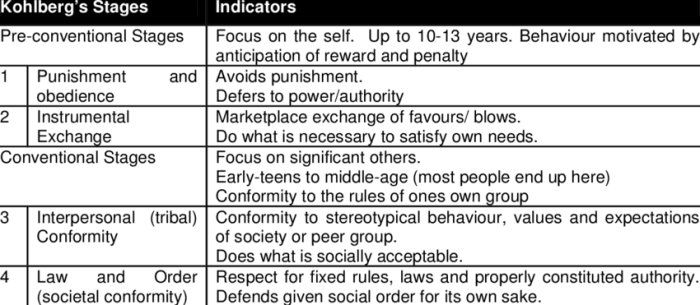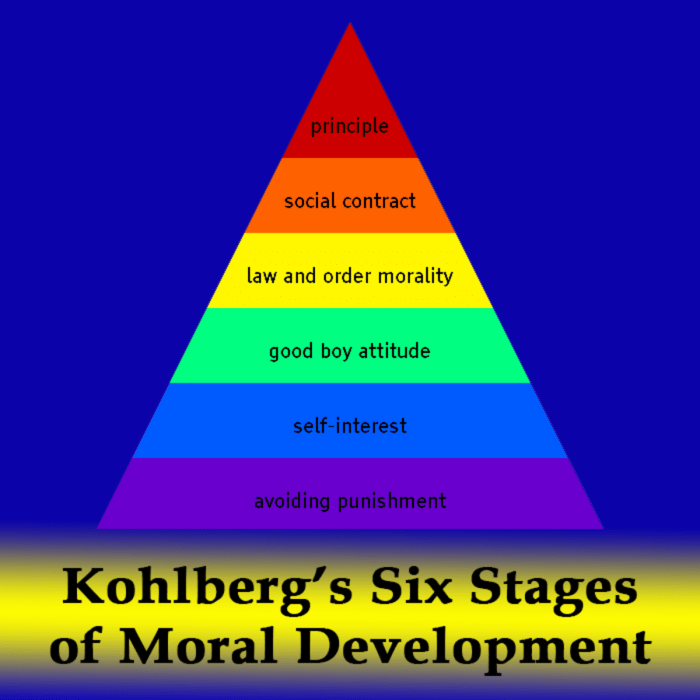Kohlberg’s stages of moral development worksheet answers provide valuable insights into the complex and fascinating topic of moral development. This comprehensive guide delves into the theoretical underpinnings of Kohlberg’s theory, explores its practical applications, and addresses common criticisms, offering a nuanced understanding of this influential framework.
Kohlberg’s theory posits that moral development progresses through six distinct stages, each characterized by unique cognitive and emotional capacities. The worksheet questions assess students’ comprehension of these stages, while the answer keys facilitate a deeper understanding of the theory’s key concepts.
Kohlberg’s Stages of Moral Development: Kohlberg’s Stages Of Moral Development Worksheet Answers

Lawrence Kohlberg mengembangkan teori tahap perkembangan moral untuk menjelaskan bagaimana penalaran moral berkembang seiring bertambahnya usia. Teorinya didasarkan pada gagasan bahwa individu melewati serangkaian tahap perkembangan moral yang berbeda, masing-masing ditandai dengan cara berpikir yang berbeda tentang masalah moral.
Teori Kohlberg terdiri dari tiga tingkat perkembangan moral, masing-masing dengan dua tahap:
Level Pra-Konvensional
- Tahap 1: Orientasi Hukuman dan Kepatuhan
Individu mematuhi aturan untuk menghindari hukuman.
- Tahap 2: Orientasi Relatif-Instrumentalis
Individu mengikuti aturan untuk mendapatkan hadiah atau imbalan.
Level Konvensional, Kohlberg’s stages of moral development worksheet answers
- Tahap 3: Orientasi Anak Baik
Individu mematuhi aturan untuk menyenangkan orang lain dan mendapatkan persetujuan.
- Tahap 4: Orientasi Penegakan Hukum dan Ketertiban
Individu mematuhi aturan untuk menjaga ketertiban sosial dan menghindari kritik.
Level Pasca-Konvensional
- Tahap 5: Orientasi Kontrak Sosial
Individu menyadari bahwa aturan dapat berubah dan fleksibel, dan mematuhi aturan untuk mencapai tujuan bersama.
- Tahap 6: Orientasi Prinsip Etika Universal
Individu bertindak sesuai dengan prinsip-prinsip moral yang universal, bahkan jika itu bertentangan dengan hukum atau aturan sosial.
Questions and Answers
What are the key characteristics of Kohlberg’s six stages of moral development?
Kohlberg’s stages are characterized by increasing levels of cognitive complexity, moral reasoning, and empathy. Each stage represents a distinct way of understanding and responding to moral dilemmas.
How can Kohlberg’s theory be applied in educational settings?
Kohlberg’s theory provides a framework for understanding students’ moral development and can be used to design educational interventions that promote higher levels of moral reasoning.
What are the major criticisms of Kohlberg’s theory?
Critics argue that Kohlberg’s theory is too focused on cognitive development and neglects the role of emotions and social factors in moral decision-making. Additionally, the theory has been criticized for being overly reliant on male participants and not adequately accounting for cultural variations in moral development.


